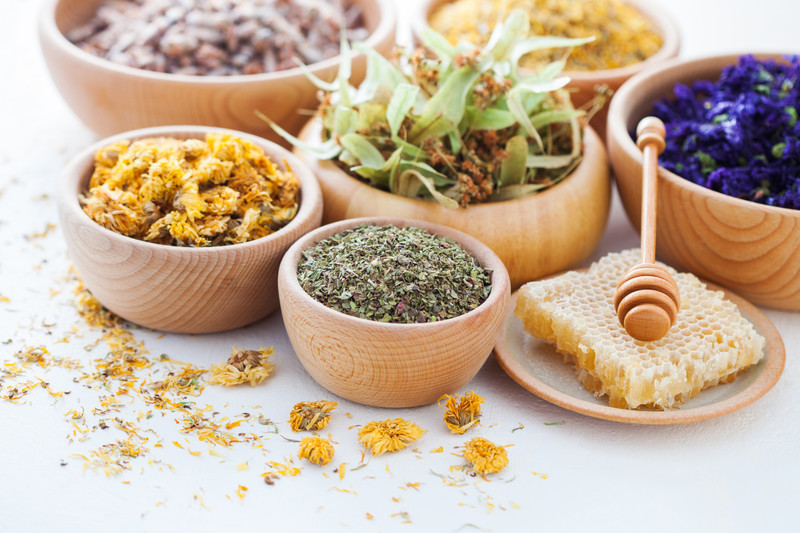Herbalism refers to the realm and practice of using plants for health and medicinal purposes. Here, we give an overview of herbalism, and discuss five of the best herbal supplements on the market, and their potential benefits to your health.
What Is Herbalism?
Herbalism is the study and utilization of herbs and other plant-based foods for their benefits to human health. As a medicinal approach, herbalism is practiced by some as a distinct alternative to western medicine. For others, herbalism is practiced in tandem with western medicine. Historically, herbalism has been practiced in eastern medicinal traditions, and is now granted a spot as a legitimate option in modern western medicine.
The use of herbs for medicinal reasons has increased significantly in recent years, and for good reasons. It is well-known that many types of prescription medication have side effects, and these can produce negative changes in the body over time. Medicinal herbs, however, are non-toxic and can be beneficial to the body without producing side effects. Many people now prefer this approach to medicine over the use of prescription medications.
The herbal approach to medicine is considered to be more holistic and healthier than relying on prescription medication to treat symptoms. The practice of herbalism is rooted in tradition as well as evidence-based research for particular uses of many different herbs.
Five Excellent Herbal Supplements
Berberine is a bioactive substance which occurs naturally in various plants, and it is extracted and made available in supplement form. One of its most renowned benefits is helping to lower blood-sugar levels. In fact, research shows that it does this so effectively that it is comparable in effectiveness to the diabetes drug metformin. Berberine can also help lower blood triglyceride and cholesterol levels, making it an excellent herbal supplement for promoting heart health.
Curcumin is the active ingredient in the herb known as turmeric and is available in isolated form as an oral supplement. It is most known for its ability to combat bodily inflammation, which is well-supported by scientific research. Curcumin works to block inflammation at the molecular level. It has been found to reduce inflammation in those with rheumatoid arthritis just as effectively as certain prescription drugs. Curcumin also has powerful antioxidant effects, and can also help to reduce symptoms of depression.
Echinacea is a flowering plant native to North America. It is known as an immunostimulant, containing antiviral, antimicrobial, and anti-inflammatory properties. Echinacea contributes to multiple chemical interactions in the body. It is particularly useful for stimulation in the immune system in the face of flu, the common cold, bronchitis, and other types of respiratory infections.
Ginkgo biloba is an herb that is taken in order to promote healthy cognition and memory. Research shows that it is useful for elderly men and women who are experiencing cognitive decline due to dementia or Alzheimer’s disease. Ginkgo biloba helps by improving endocrine homeostasis, regulating hormone sensitivity, and maintaining endothelial microvascular integrity at the cellular level.
Red yeast rice: The extract of red yeast rice, available in supplement form, has been found to be just as effective as some statin medications for reducing blood triglycerides and managing cholesterol. That is because it contains small amounts of monacolin K, the same active ingredient found in some statin drugs. Red yeast rice can help prevent serious cardiac events. It can be found in some complex supplements combined with other heart-healthy compounds.
If you are looking for natural herbal supplements to replace prescription medications and meet your health needs, then consider these five herbal supplements for starters. Many other fantastic herbal supplements are also available. It’s recommended that you always talk to your healthcare provider before trying a new supplement.

